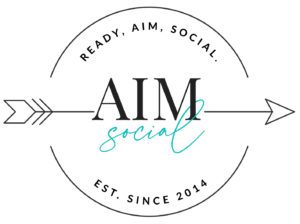If your business is using social media, you should be measuring your efforts regularly with these social media metrics. Not only does measuring allow you to track your success, but you can also uncover mistakes and figure out ways to improve your campaign. There are many benefits of social media marketing for business, but measuring its effectiveness isn’t always clearly defined. For instance, how will you know if you are on the right track or when you reach your goals? What metrics are worth paying attention to, and what do they mean for your business?
How to Read Social Media Metrics
Nearly all social media platforms come with helpful dashboards that lay out all the information you need in one place. All you have to do is know how to read the data.
- Likes and Shares – the simplest metric you’ll need to track are the numbers of likes and shares that your posts receive
- Audience Growth Rate of Followers – the number of followers you’ve gained over the last day, week, or month
- Active Fans – the number of fans who interact with your business
- Organic vs. Paid Results – important to keep track of the ROI to see whether you should re-invest in new keywords
- Clicks Per Post – helps determine how much traffic your social media efforts are bringing in and whether you need to post more
- Lead Generation – tracking the number of people that visit your site from your social media accounts and which one generates the most leads
- Audience Demographics – helps paint the picture of your target market and understand what they are interested in
Four Keys to Your Customer Journey
Awareness
These metrics illuminate your current and potential audience. Brand Awareness is the attention your brand gets across all social media during a reporting period. Attention can be expressed through a variety of media metrics, including mentions, shares, likes, and impressions.
Engagement
These metrics show how audiences are interacting with your content. Applause Rate is the number of approval actions (e.g., likes or favorites) a post receives relative to your total number of followers.
Conversation
Conversion metrics demonstrate the effectiveness of your social engagement. Conversion Rate is the number of visitors who take action on a page after clicking on your post. A high conversion rate means your content is valuable and compelling to your target audience.
Consumer
These metrics reflect how active customers think and feel about your brand. Customer Testimonials are any customer review, assessment, or review relating to a brand. Ultimately, great testimonials are the product of customer delight. If your brand makes people happy, they’ll be more likely to share their good experiences with others.
Social Media Goals
Your social media goals are what determine your metrics. You need a related metric for every goal. That will help determine if your social strategy is hitting the mark or not. Let’s break down the importance of social media engagement into quick goals and actions.
Boost Customer Relationships
Communication between business and customers is now a two-way street, enabling customers to engage with their favorite brands in entirely new ways. Whenever customers reach out to your brand on social media, you’re given an incredible opportunity to build new relationships by getting to know them better.
Develop Customer Loyalty
More often than not, customers will reach out when they’re in need. Offering a quick and helpful customer experience will go a long way in increasing your customer loyalty. Solving all their issues, expressing gratitude, and having personalized conversations with them will help you develop and increase customer loyalty for your brand.
Boost Sales
If you’re out there responding to customer queries promptly, it will instill a sense of confidence and trust in your customers. They know they will receive an answer from you, and that’s valuable to customers. They’ll now be more willing to purchase through your store.
As you develop your campaign, consider what your end goal is or what your Key Performance Indicators (KPIs) are. This can assure you develop a campaign that will drive the type of results you are looking for. On Facebook, Instagram, and Twitter, there are a few commonly tracked metrics for social media campaigns. Some include reach, impressions, page likes, engagements, and site traffic. Once you finalize the objective of your social media campaign, you’ll need to make sure you have sufficient tracking in place to successfully measure each metric in your campaign. Now that you better understand the overall objective of your campaign and how to track your following, reach, engagements, and website visits, you’re ready to effectively launch your new social media campaign!
Be sure to read Common Mistakes On Social Media to save yourself some frustration.

